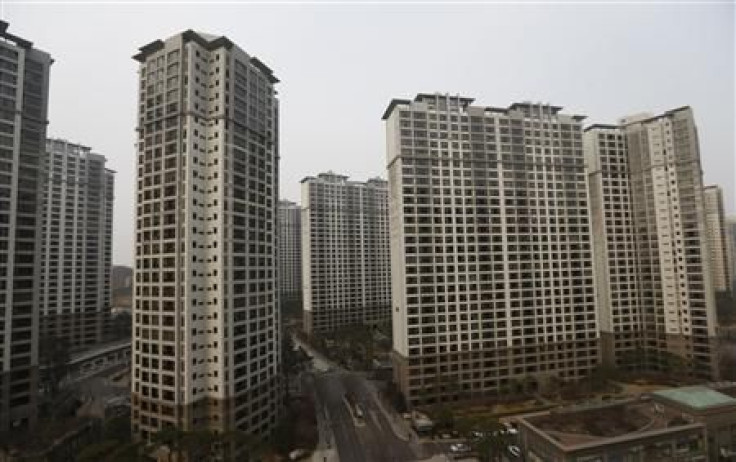Near-Bankrupt South Korean Builders Force Unsold Apartments On Employees Amid Protracted Real Estate Slump

South Korean real estate firms trying to stave off bankruptcy are forcing unsold flats on their employees who then have to borrow huge sums to purchase them, Reuters reports, weeks after South Korea introduced measures to boost home sales.
With real estate transactions hitting record lows and property values continuing to decline, builders are pushing their staff to take loans to buy unsold apartments.
An employee at Poonglim Industrial Co Ltd, who spoke to Reuters on the condition of anonymity, said “there was pressure” to show loyalty to the employer and that in South Korea construction companies were “run like the armed forces.”
A public relations official at Poonglim told Reuters that employees had taken loans on behalf of Poonglim and interest payments were being shouldered by the company.
Going by past examples, this practice is not uncommon in the country's real estate sector.
Kim Keon-hoon, an employee at Byucksan Engineering & Construction Co Ltd, told Reuters he was pressured into buying an apartment in Seoul’s suburbs for ₩800 million (about $700,000) in 2008, when his employer was struggling to avoid a looming bankruptcy. Kim and his coworkers, who could not repay millions in debt, subsequently sued their employer.
Kim was also among one of the real estate workers who were forced by their employers to buy unsold flats in 1998, during the Asian financial crisis. He said he couldn’t refuse to take on the mortgage out of concern for his career.
A Byucksan official, responding to a Reuters query regarding Kim’s and his colleagues’ allegations, said it was a “practice in the past and it can now only be resolved by reselling” the flats.
“There is nothing we can do to manage the problem as the company is still under receivership,” the official added.
In early April, South Korea introduced several measures to boost home sales, a month after President Park Guen-hye took charge.
The new package of measures included reducing public housing supply, tax breaks for first-time home buyers and relief measures for people under pressure to pay off the principal on their mortgage amid falling property values.
“The housing market has been slowing since 2008, leading to a reduction in the number of transactions,” the government said in a statement reported by the WSJ.
However, the ₩800 billion earmarked for the scheme is far less than the ₩18 trillion Park promised in the run-up to the presidential election.
South Korea’s household debt has jumped 50 percent over a decade reaching almost $1 trillion. And, concerns have been growing in the country that poor earnings statements and reduced business cash flow from an extended real estate slump, experienced by small and medium construction companies, could affect major builders.
A total of 28 major builders have set a target of ₩70.3 trillion worth of domestic orders this year, up 5.3 percent from last year, Yonhap news agency reported, citing data from the Korea Federation of Construction Contractors.
Severe competition between real estate players in a sluggish market has dragged prices down, resulting in declining net earnings. As the industry hits rough weather, 21 builders have been placed under either a debt workout program or court receivership, Yonhap reported.
In the January-March period, Hyundai Engineering & Construction Co. and eight other builders suffered combined operating losses of ₩480.9 billion, Yonhap reported, citing data from FnGuide.
Meanwhile, the real estate slump has driven up the ratio of bad loans at South Korean banks, causing real-estate creditors to face losses from property financing deals gone sour.
The bad-loan ratio of real estate project financing climbed to 10.70 percent at the end of March, compared to 9.34 percent three months ago, South Korea’s Financial Supervisory Service data said.
© Copyright IBTimes 2024. All rights reserved.












